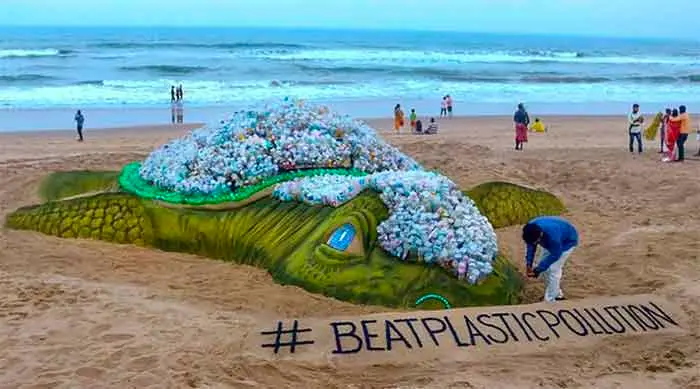In 1972, the United Nations General Assembly designated 5 June as World Environment Day (WED). The first festival took place in 1973 under the slogan “Only One Earth”. In later years, WED evolved into a platform to raise awareness about the problems facing our environment, such as air pollution, plastic pollution, illegal wildlife hunting.

Business, sustainable development. consumption, sea level rise and food security, among others. Furthermore, WED contributes to changing consumption patterns and national and international environmental policies.
Table of Contents
The theme of World Environment Day 2023
Solutions to Plastic Pollution
This year marks the 50th anniversary of World Environment Day, which will focus on solutions to plastic pollution using the hashtag and slogan #BeatPlasticPollution.
2023 World Environment Day Host Country
The host country for 2023 is Côte d’Ivoire.
Côte d’Ivoire:
Côte d’Ivoire is a West African country with beach resorts, rainforests and a French-colonial legacy. Abidjan, on the Atlantic coast, is the country’s major urban center. Its modern landmarks include zigguratlike, concrete La Pyramide and St. Paul’s Cathedral, a swooping structure tethered to a massive cross. North of the central business district, Banco National Park is a rainforest preserve with hiking trails.
source by Google

Why take part in World Environment Day 2023?
Urgent Action Needed to Combat Climate Crisis and Environmental Degradation
The global community is facing a critical moment as time runs out and nature enters emergency mode. To safeguard the planet and limit global warming to below 1.5°C this century, it is imperative that we take immediate and decisive action. By 2030, we must cut annual greenhouse gas emissions in half to stay on track. Failure to act swiftly will result in dire consequences, including a 50% increase in exposure to unsafe air pollution levels and a nearly tripled amount of plastic waste infiltrating our aquatic ecosystems by 2040.
The urgency of the situation cannot be overstated. The consequences of inaction on climate change are far-reaching and will affect every aspect of our lives. Rising global temperatures will exacerbate extreme weather events, threaten food security, and trigger the loss of biodiversity at an alarming rate. It is a race against time to mitigate these impacts and preserve the health and well-being of both current and future generations.
To address these pressing issues, we need comprehensive and immediate measures at both the individual and collective levels. Governments, businesses, communities, and individuals must collaborate to drive substantial changes across various sectors.

First and foremost, reducing greenhouse gas emissions must be at the forefront of our efforts. This entails transitioning to renewable energy sources, improving energy efficiency, and implementing sustainable transportation systems. Additionally, we must support and invest in innovative technologies that can capture and store carbon emissions, further reducing our carbon footprint.
Furthermore, we must urgently tackle the issue of air pollution, which poses severe risks to human health. Implementing strict regulations on industrial emissions, promoting cleaner transportation options, and encouraging the use of sustainable energy sources will help mitigate this crisis. Additionally, promoting and supporting initiatives that reduce the burning of fossil fuels and limit deforestation will play a crucial role in preserving air quality.

Addressing plastic waste is another imperative task. Immediate steps must be taken to reduce single-use plastics, promote recycling and waste management systems, and raise awareness about the environmental consequences of plastic pollution. By implementing effective policies and encouraging sustainable consumer choices, we can curb the alarming trend of plastic waste accumulation in our oceans and waterways.
Education and awareness play a pivotal role in driving change. We must inform and empower individuals to make sustainable choices in their daily lives. By fostering a culture of environmental consciousness, we can collectively contribute to a greener and more sustainable future.
